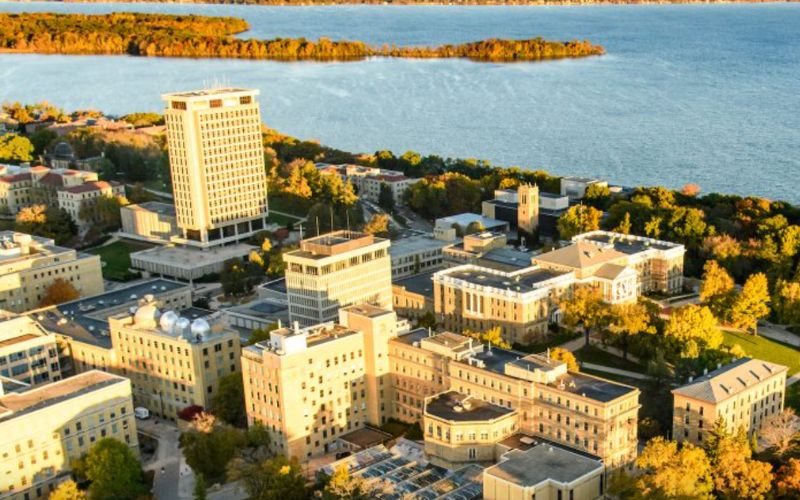
- Details
- By Native News Online Staff
The University of Wisconsin-Madison will now cover the full cost of an undergraduate degree and tuition for certain graduate students who are Wisconsin residents and also enrolled members of a federally recognized Wisconsin Tribe beginning fall of 2024.
The initiative, dubbed the e Wisconsin Tribal Educational Program, covers the full cost of an undergraduate degree, as well asin-state tuition, housing, meals, books, and other educational expenses. The program will also cover the cost of in-state tuition for professional students pursuing a J.D. (law) or M.D. (medical) degree.
“As a university, we are deeply committed to a future of mutual respect and cooperation with the American Indian tribes in Wisconsin,” Chancellor Jennifer Mnookin said in a press release. “This program is another tangible, meaningful step in that direction.”
The program is not based on financial need, and will be awarded regardless of family income. Current students who qualify will also receive the program’s financial support beginning in the fall of 2024.
 Make A Donation Here
Make A Donation Here
Mnookin met with the Great Lakes Inter-Tribal Council over the past year to discuss the proposed program and make changes per the council’s feedback. In October, the council unanimously voted to support the Wisconsin Tribal Educational Program.
“While several other states have programs with similar goals, we are not aware of another effort that goes this far financially to help Native students afford higher education,” said Shannon Holsey, chairwoman of the Great Lakes Inter-Tribal Council, in a press release. “This program sends a strong message that our students are important to the state’s flagship university.”
Despite that the University is located on Ho-Chunk (Hooçak) land, UW-Madison enrolled a total of 50,633 students for the 2023-24 academic year, and Native students only accounted for 134 of them, according to the Office of the Registrar of UW-Madison.
Since 2016, a Native Nations working group at UW-Madison has been working to create a strategic plan to build relationships with the 11 federally recognized Tribes of Wisconsin. In 2019, the university pledged a shared future collaboration with the Ho-Chunk Nation.
“It is our hope that more Native students will take a second look at UW–Madison and realize that we are not out of reach,” said Carla Vigue, UW–Madison's director of tribal relations, in a press release. “I want Native students to know that, once here, we have support and services that can help them thrive and feel a real sense of belonging at this world-class university.”
More Stories Like This
Bard College Center for Indigenous Studies (CfIS) Hosts Annual Symposium With Keynote Speaker Miranda Belarde-Lewis on March 9–10American Indian College Fund Announces Spring 2026 Faculty Fellow Cohort
Navajo Nation Signs $19 Million Diné Higher Education Grant Fund Act into Law
Dr. Shelly C. Lowe to Be Inaugurated as IAIA President March 26–27
Tlingit Language Courses Expand for Students to Learn With Families At-Home
Help us defend tribal sovereignty.
At Native News Online, our mission is rooted in telling the stories that strengthen sovereignty and uplift Indigenous voices — not just at year’s end, but every single day.
Because of your generosity last year, we were able to keep our reporters on the ground in tribal communities, at national gatherings and in the halls of Congress — covering the issues that matter most to Indian Country: sovereignty, culture, education, health and economic opportunity.
That support sustained us through a tough year in 2025. Now, as we look to the year ahead, we need your help right now to ensure warrior journalism remains strong — reporting that defends tribal sovereignty, amplifies Native truth, and holds power accountable.
 The stakes couldn't be higher. Your support keeps Native voices heard, Native stories told and Native sovereignty defended.
The stakes couldn't be higher. Your support keeps Native voices heard, Native stories told and Native sovereignty defended.
Stand with Warrior Journalism today.
Levi Rickert (Potawatomi), Editor & Publisher

